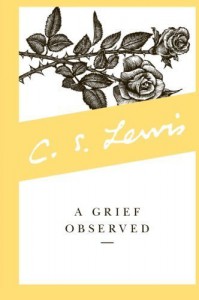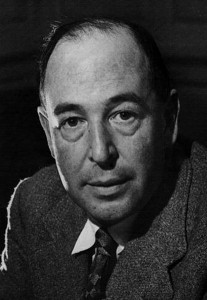 I’ve more or less always known that C.S. Lewis was a fabulous writer. “A Grief Observed,” though, being his first nonfiction book I read through, blew my mind. It’s not necessarily his diction or prose, nor even the way he writes. It’s not even his intelligence that captures me per se.
I’ve more or less always known that C.S. Lewis was a fabulous writer. “A Grief Observed,” though, being his first nonfiction book I read through, blew my mind. It’s not necessarily his diction or prose, nor even the way he writes. It’s not even his intelligence that captures me per se.
Lewis has a wonderful knack for painting dirty reality and piercing truth in such a real sense of understanding; reading into his reservations and insights is flooring because of its relatability and honesty.
My Take is Limited
This is my C.S. Lewis: Grief Observed Summary and Review. But first I must tell you that it is not complete. It cannot be something I complete. In order to have a good and complete review of this book, you would have to gather several different people. Different people who have varying experiences with death and grief.
You would need, at least, two perspectives: one from someone who just recently suffered a separation and one from someone who still mourns after years. Further input could also be taken to contrast the difference between a brother or friend versus a child or a lover. Or perhaps you could contrast a young relationship to a lifelong one.
As it is, you are reading a review from someone who has had few such dealings with grief. Death of people I know, yes. Also pain and suffering. But I have never dealt with someone’s exit whom I was extremely attached to; that is, no one I regularly lived my life with and knew very well.
A Story for Everyone
However, “A Grief Observed” does not require a brush with grief in any way to be able to enjoy and learn from it. Poring over the pages I found myself able to empathize with Lewis’ internal debate and struggle after the passing of his wife.
I have wrestled with a great many of the emotions and failed logical paths that Lewis experienced. Chief of these being the feeling of a door slammed in my face when I attempt to pray, or the description of the “cosmic sadist” that Lewis paints. I can also empathize with his lack of social drive, not really wanting to speak to anyone and rarely wanting to go anywhere.
In “A Grief Observed,” (which is basically an edited and published collection of journal entries) Lewis often contradicts himself and revises or completely reverses thoughts he wrote down at earlier times. Such is the way of the fickle and emotional human mind, especially with a pitiful mood such as grief.
That being said, Lewis would often reread things he had wrote and then criticize them, proceeding to reason a counterargument for his own unfiltered thoughts. I believe he was being very humble and generous here, in the way that he was willing to let others for their own benefit read thoughts he had which he later considered embarrassing drivel. As a blogger, it speaks to me.
 I think we all have experienced this zigzag of thought patterns. Most thoughts, after leaving the mind, suffer a complete loss of dignity. Once they are verbalized or written, they are no longer clothed in the biases or assumptions of their creator.
I think we all have experienced this zigzag of thought patterns. Most thoughts, after leaving the mind, suffer a complete loss of dignity. Once they are verbalized or written, they are no longer clothed in the biases or assumptions of their creator.
Then being naked, they are subject to observation and critique by any who may read or listen, even if the reader or listener is also the writer or speaker. In this case, Lewis was both a writer and reader of such thoughts.
Since there is so much in “A Grief Observed” that I can personally compare with and relate to, and being that I am not a real student of the loss of a close relationship, I can only conclude that grief is perhaps not only something people enter into after a death. Or at the very least, that this book is not simply about grief but about pain and life.
That being said, this book is for anyone who has suffered, questioned God’s intentions, or wandered with their thoughts to a realm of confusion or isolation. It helped me to work through some difficult thoughts about life and God I was still processing.
Final Thoughts
By the end of the book, seemingly with no real cause or discernible reason other than the passage of time and free flow of thought, Lewis seems to be more at peace with the death of his wife. We see that God has repaired not only Lewis’ relationship with Himself, but also the thoughts of his lover.
Although I’m sure most readers skip them, the foreword and introduction for the newer versions of the book are also worth a read: a woman with a firm and loving tone gives her own review of the book, mentioning how her own story of grief after a lifelong marriage barely compares with the story that Lewis wrote about, practically having just been married.
Also, Lewis’ stepson gives an explanation for his behavior that was allegedly misunderstood by Lewis. It’s quite interesting to hear an abbreviated version of the story from a different perspective as well as some quick family history. These essays give background on and set the stage for the journey to come.
It is a solemn and yet refreshing adventure to go on with Lewis in “A Grief Observed,” to see his grieving process as well as his progress in faith and in love. Since it is so short I would say this is one of those essential reads for just about anyone, especially those struggling with grief.
Perhaps there is nothing magical about it, and perhaps that is exactly the magical thing about it. It is one transparent story of a grieving man, wrestling with faith and love and life in the mix. A difficult struggle and an honest account given so that perhaps it might help others cope as well, whether they are coping with death or anything else life ails us with.
Did you enjoy my C.S. Lewis: Grief Observed Summary and Review? Do you have experience with grief that this book helped you to process? I’d love for you to comment below and let me know about it. And of course, I appreciate you reading!

Tennyson, I like your approach on this one. You share from an honest perspective without any pretense. It helped me to see it through fresh eyes and a different perspective. I truly enjoyed your review.
I ran across this book after going through a couple years of grief for a Nephew we lost too soon. To be honest, I still do. While reading A Grief Observed I was struck by the similarities of Lewis disjointed and panicked thoughts, rage, and reluctant acceptance one feels when going through the throws of the grieving process.
“Her absence is like the sky, spread over everything.”
I watched my Nephew grow from a small child into a young man through the course of many years. And then one day the phone call from his mom came a couple days after Christmas. My wife next to me, I cried out, and I never saw it coming. The next year it felt exactly as Jack painted it. His absence was everywhere. So many conversations left hanging, moments to be shared, and all I could think of is, “I will never meet his children.”
I cannot fathom what it meant for Jack to lose his wife, although I can imagine it is something I would not want to endure. And I say all of this because I am human and there is a veil that separates us from those we love. It doesn’t diminish the faith I have or what I believe. But there was moments of rage where I didn’t understand why he was taken from us so soon. He passed in 2009. Maybe it is still fresh. Or maybe I will continue to feel this way on days when I see someone who reminds me of him, hear a laugh that matches his own, or spend a night under the stars wondering if he is part of the great cloud of witnesses.
Scars heal funny. They just do.
My faith is stronger now, but this put me to the test. Perhaps this is what we witness within the small pages of Lewis work. I believe that is the parts he could share, and Heaven forbid being present when he refrained from writing. In the end, there is pain here with those we love; we may lose them while we continue on. As Jack’s wife Joy pointed out to him, “That’s the deal.” She knew what was ahead when she said it.
For me, the book comforted me in letting me know I am not alone in how I feel when I grieve. The older I get the more lives pass by me as I will one day do myself. It quickens my pulse knowing we are only a vanishing mist and we are gone, so why not make the most of it?
Wow! Thanks for sharing your story, Charles. What I like about Lewis is that he is so honest about faith and struggle. We hear too much of “just believe God is sovereign and you’ll feel better.” No, we won’t, we will still suffer. We live in a broken world and we can’t be in denial or hiding of that. But we also have a God who is interested in hearing our sorrows, and we cannot forget that.
I’m glad to hear this book helped you process your feelings. It’s quite therapeutic, even for one who hasn’t much experience with grief.